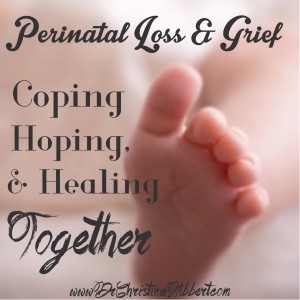
15 Oct Perinatal Loss & Grief: Coping, Hoping & Healing Together (in honor of Pregnancy & Infant Loss Remembrance Day)
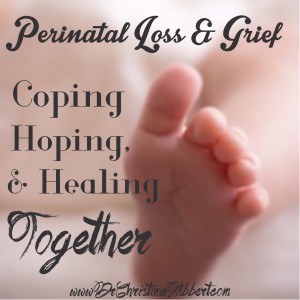 Today is Pregnancy and Infant Loss Remembrance Day, a day for families to remember the loss of their baby. Whether through miscarriage, stillbirth, or neonatal death, the loss of a baby is one of the most difficult experiences a mother, father, and family can go through, and today is a day when we can all reach out in support, and love, as we remember, too. Tonight, at 7 pm, millions will light a candle to remember the lost babies. Will you light a candle with us?
Today is Pregnancy and Infant Loss Remembrance Day, a day for families to remember the loss of their baby. Whether through miscarriage, stillbirth, or neonatal death, the loss of a baby is one of the most difficult experiences a mother, father, and family can go through, and today is a day when we can all reach out in support, and love, as we remember, too. Tonight, at 7 pm, millions will light a candle to remember the lost babies. Will you light a candle with us?
This post is for all remembering their babies today, and each day, for all who are grieving, healing, and finding hope again. May these words buoy you up as you seek to cope with and heal from perinatal loss. May you feel my love for you!
Coping with Perinatal Loss
One thing that makes perinatal loss especially difficult is the many associated losses that accompany the loss of a baby. Not only has your baby died, but you may also experience:
- The loss of the future–dreams, hopes, and what “could have been.”
- A loss of innocence–knowing now how painful life can really be.
- Loss of support–from friends, family, and even partners who just don’t understand the grief you feel.
- Loss of confidence–doubt about your body, your habits, and your ability to cope. Loss of confidence in life, in others, and even in God.
Perinatal loss often feels like a “silent” loss, like you’re grieving alone and wondering why no one is feeling this devastation, this hole in the world. You may feel you’re all alone, isolated, like no one understands your pain, like you’ll never be whole again.
Allow me to say the words you need to hear, and I pray you’ll believe them:
1. “You’re not alone.” Perinatal loss is, unfortunately, all too common. According to research, more than a million miscarriages occur each year in the United States alone.[1] In 2006, there were 25, 972 reported stillbirths, and 28,509 reported infant deaths.[2] This means millions of women, men, couples, and families are grieving the loss of a child each year. Though you feel isolated in your experience and your grief, reach out. There are many who understand. You’re not alone.
2. “You have a right to feel devastated, to feel cheated, angry, depressed, fearful, overwhelmed with  grief.” You have a right to feel however you feel–it’s part of grief, and it means you loved your baby. Let yourself feel what you feel.
grief.” You have a right to feel however you feel–it’s part of grief, and it means you loved your baby. Let yourself feel what you feel.
3. “Many people really don’t understand your pain, and that is a horrible truth. But, many people can, and will, understand, if you let them in.” You may feel like nobody “gets it,” like your loss is trivialized or forgotten. Unfortunately, this is common. Many people don’t understand perinatal loss, and few who haven’t been through it really “get” it. Even couples going through it together experience perinatal loss in unique, and often completely opposite ways. This may make you feel like even your partner doesn’t understand how you feel, that even he or she isn’t grieving the loss of your child as you are. Help them understand by bringing them into your world. Talk about your grief. Explain how you feel. Keep searching until you find that someone who truly understands. (Visit MISSFoundation.org to find support groups for perinatal loss.)
4. “As a mother, you’re likely to experience this loss more profoundly than even your partner will, because this baby was carried by you.” You knew this baby best, and often it can feel like no one cares but you. But, they do care. It’s just that you were closest to the baby. It makes sense you would grieve the most deeply. Grief is a sign of love, and you loved your child.
5. Pregnancy and postpartum loss not only affects mothers; it can have a significant impact on the father/partner, the couple’s relationship, other children, and the entire family system. Loss and grief have long been considered an individual process, but couples and families who turn together in times of perinatal grief will not only heal as individuals, they will strengthen the family, too.
6. Each will experience the loss and grieve in his or her own unique way. Mothers can feel alone in their grief process—like they carry the weight of grief for the family. Fathers/partners may isolate into work or activities to cope with grief, making it difficult for couples to come together and work through grief as a team. Siblings or other children are often forgotten in the grief process because parents are so overcome by their own grief. Thus, families often bear the stress of grief symptoms, with family members feeling isolated or like the family is pulling apart. Yet, families who FEEL together HEAL together (This is How We Grow). (Read “Dealing with Grief,” “Siblings & Grief” and “Children & Grief”).
Watch my episode of Motherhood Radio, “Coping, Healing & Carrying On After Perinatal Loss,” on YouTube, here.
Grieving the Loss of a Baby
How can one find hope again after perinatal loss? The first step is to grieve your loss. Until you grieve sufficiently, it will be challenging to fully heal. And until you fully heal, it’s tough to feel the hope you desire.
Grief is part of pregnancy and postpartum loss, and can have a wide range of emotional, physical, and mental symptoms, including: sadness, anger, guilt, anxiety, loneliness, numbness, fatigue, tightness in chest/throat, sleep disturbance, changes in appetite, restlessness, confusion, inability to concentrate, poor memory, and even experiences like hearing or seeing the deceased.
In fact, experts estimate there are over 100 symptoms of grief. That’s why it can feel so hard. We become overwhelmed with a horde of emotions and symptoms that leave us wondering, “How do I deal with my grief?”
Perinatal grief, like that after miscarriage or stillbirth, can be even more complex and unique. It often involves a sense of biological failure and a loss of self. It can be tough to process because, as we discussed above, the loss is often minimized by others, leaving mothers, fathers, and families feeling vulnerable. Loss in pregnancy and postpartum can also be accompanied by a loss of innocence, a knowing that death and painful loss are real and do happen. This can increase anxiety, worry, and fear in mothers and their family members, and these fears often carry over into future pregnancies as well. (Read Sharon Martin, LCSW’s post, “Healing Perinatal Loss“).
What is a family to do in times of perinatal loss and grief, to restore hope and to heal?
1) First, know that your loss is real. It matters. And it is real and matters for your family members, too. Even if they feel or express their sense of loss in a different way, know that it matters to each of you.
2) Know that grief is the body and mind’s healthy response to perinatal loss, and grief work is necessary to move forward. You must grieve your losses, and your family members must as well. Help children, partners, and other family members understand their need to grieve and give permission for family members to talk about or work through grief openly. (Read “How do I grieve? Grief work & TEARS“)
3) Remember it is normal for each of us to experience and work through grief in our own way. Try to respect your family member’s methods of grieving, but also try to turn together and bridge the gaps. (Read  “Grief & the Family“)
“Grief & the Family“)
4) Grieve individually AND grieve together, when possible. Grieving individually is important to help you process and experience your own grief reactions. But turning together and grieving as a family is powerful and can protect and strengthen family relationships. Mark the loss with a memorial or creative project, talk about it, cry together, ask, “How are you feeling today” and listen. Families who can do these things will not only heal; they can and will grow stronger through perinatal loss and grief. (Read “The 5 Stages of Grief“)
A few more things to remember about coping with and grieving Perinatal Loss…
1) There is no set time frame for how long grief “should” last. However, actively working on grief in the ways described above or through counseling or other methods can help grief resolve more quickly.
2) Honor special anniversaries and occasions. It helps process your grief to remember the people and things you have lost. Involve family, friends, and your children. (Read “Grief & Children: What you can Do?“)
3) As much as possible, turn toward your partner in times of perinatal grief. As we turn toward one another, instead of away, we offer one another the opportunity to grow as a couple, to heal, and to move on, together.
4) Involve other adults if you feel unable to cope with parenting while you treat your grief. It can be tough for parents to maintain their parenting role in times of grief. If it gets to be too much, ask a family member or friend to step into a “parent” role for a while. This will give you time to heal yourself while insuring your other children are not left to cope alone.
5) Seek grief counseling and support. Working with a grief counselor or perinatal loss support group can be incredibly powerful. It helps to have someone to guide you through and to remember you are not alone. (Visit MISS Foundation for info on support and counseling.)
Healing from Perinatal Loss & Finding Hope Again
Through grief work, turning toward one another, and relying upon family, friends, and other supports in your time of need, you can, and will heal from this loss.
This doesn’t mean you “get over it.” You never “get over” the loss of a loved one, especially a child. But you do move on. You carry on. You heal. You grow. And you begin to feel that seed of hope sprouting once more in your soul. Hope for the future, hope for seeing your little one again in that bright day, hope for 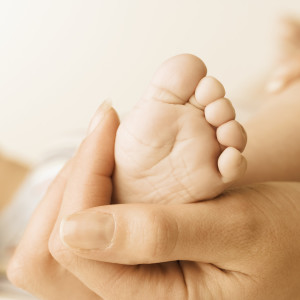 family growth and healing, and hope that everything we go through we can also choose to “grow” through (from my memoir, “This is How We Grow“).
family growth and healing, and hope that everything we go through we can also choose to “grow” through (from my memoir, “This is How We Grow“).
So, today and everyday, remember your child. Honor your child. Talk about your child. And for all who wish to support a family through perinatal loss, I say the same: Remember their child. Honor their child. Talk about their child. Use the child’s name (if s/he has one). Remembering is healing. It is keeping them alive. (Read Sharon Martin, LCSW’s post, and “How to Support a Friend Grieving Pregnancy and Infant Loss“).
Today, on this Day of Remembrance, remember. Remember all the children who have been lost. Remember all the parents who have survived and are carrying on. Tonight, at 7 pm, join families around the world in lighting a candle to remember the babies who’ve been lost (more info here). Remember, today. Love, today.
Please share your memories, feelings, and thoughts about this article in the comments, below.
Listen to “Coping, Healing, & Carrying On After Perinatal Loss,” featuring Sharon Martin, LCSW, personal and professional expert on perinatal loss, on “Motherhood” radio. Listen on demand/download the episode at WebTalkRadio.net, or visit iTunes to subscribe to the show.
Don’t miss my FREE Webinar, “Introduction to Women’s Emotions: What you were Never Taught about Hormones, the Brain, & Your Mental Health.”
Click here to claim your spot, today!
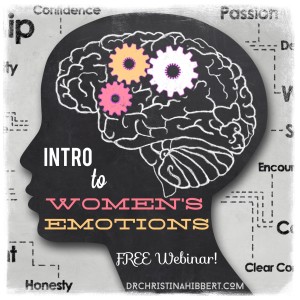
My NEW book is almost here! “8 Keys to Mental Health Through Exercise“
Pre-order today!
Be sure to check out my bestselling, award-winning memoir, This is How We Grow!
Available now at Amazon or Barnes & Noble!
My latest book, “Who Am I Without You,” is available now at
Target, Amazon, Barnes & Noble, New Harbinger, or your local bookseller!
Let’s Connect!
SUBSCRIBE, above, “Like” me on Facebook Dr. Christina Hibbert; This Is How We Grow, & follow me on Twitter, Pinterest, & Instagram!
Related Posts/Articles:
How to Cope with and Treat Perinatal Loss & Grief (guest post from Postpartum Progress blog)
How do I Grieve? Grief Work & Tears
Grief & Children: What You Should Know
5 Skills of Overcoming…Grief, PPD, Stress, etc.
Understanding & Overcoming Anger
FEEL: How to cope with Powerful Emotions
Women & Depression: 12 Facts Everyone Should Know
Postpartum Depression Treatment: What Everyone Should Know
1 Ventura SJ, Curtin SC, Abma JC, Henshaw SK. Estimated pregnancy rates and rates of pregnancy outcomes for the United States, 1990-2008. National vital statistics reports; vol 60 no 7. Hyattsville, MD: National Center for Health Statistics. 2012.
2 MacDorman MF, Kirmeyer SE, Wilson EC. Fetal and perinatal mortality, United States, 2006. National vital statistics reports; vol 60 no 8. Hyattsville, MD: National Center for Health Statistics. 2012.

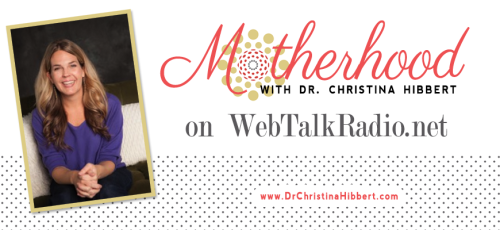


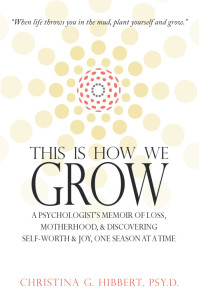
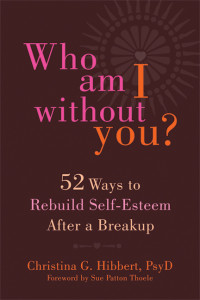
Thank you so much for sharing your own experiences and sharing such essential information for parents grieving. Do you have any of your articles in Spanish?